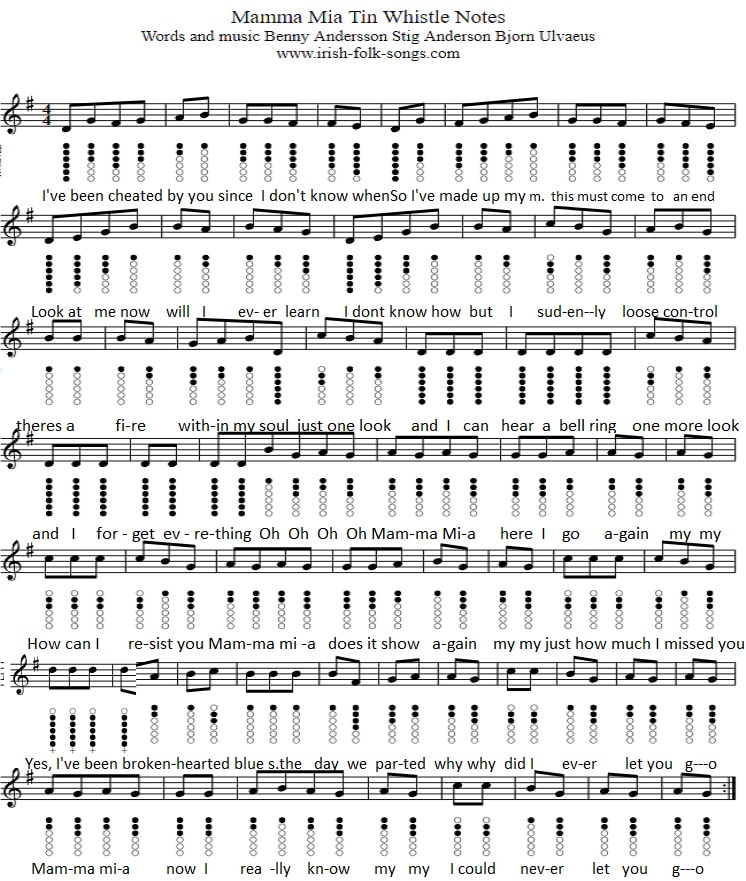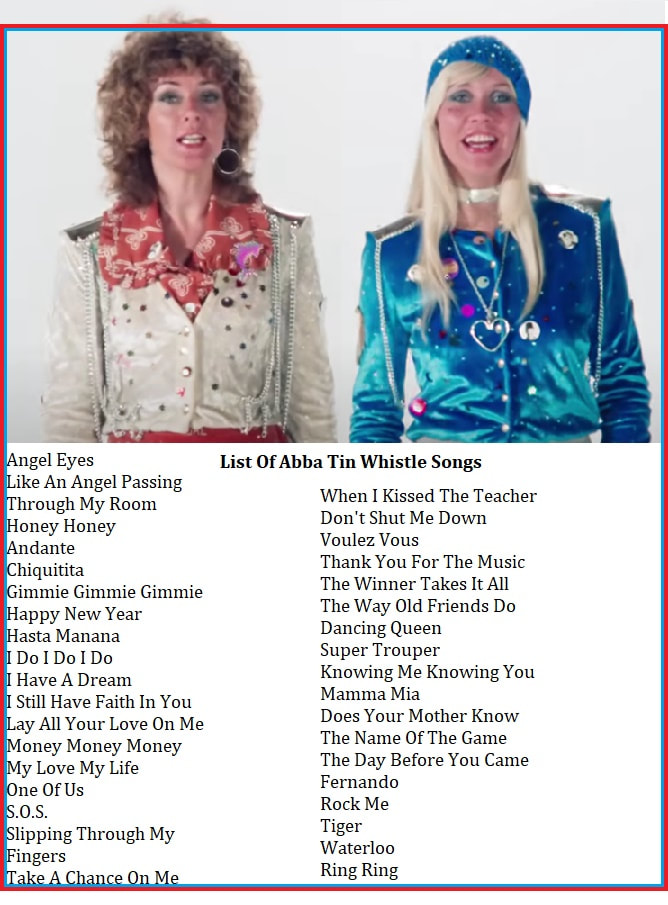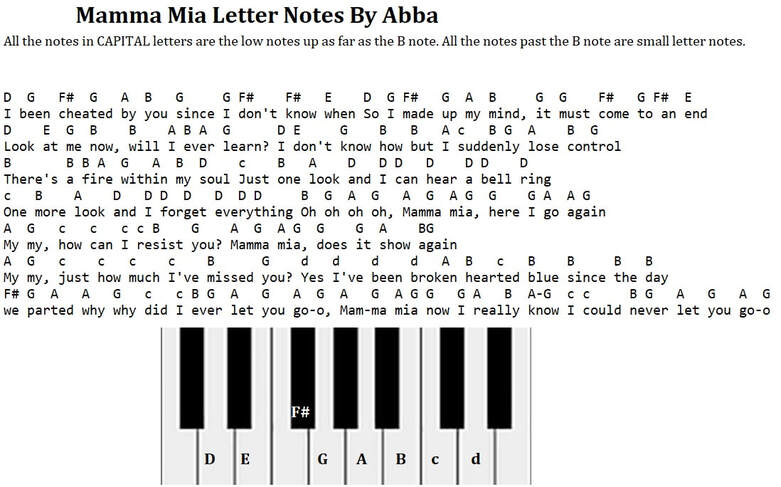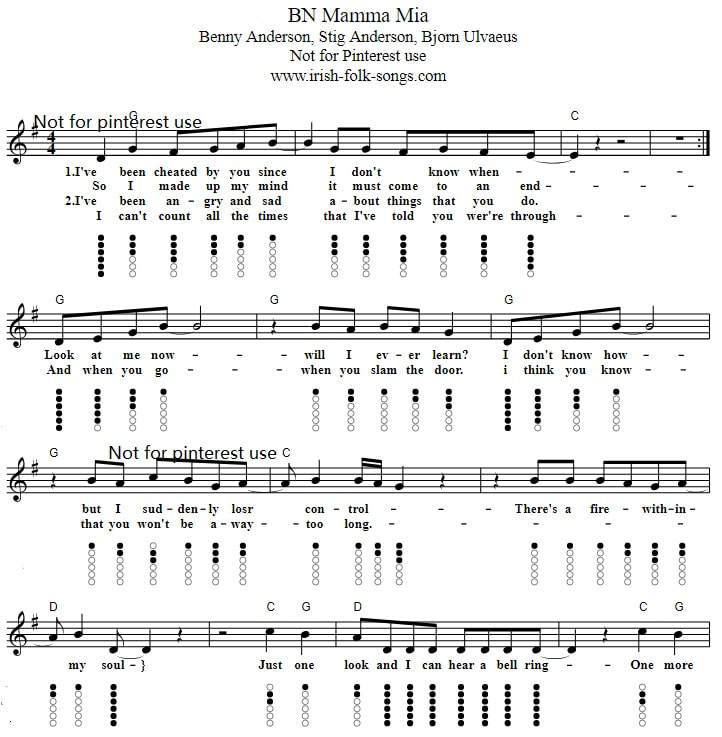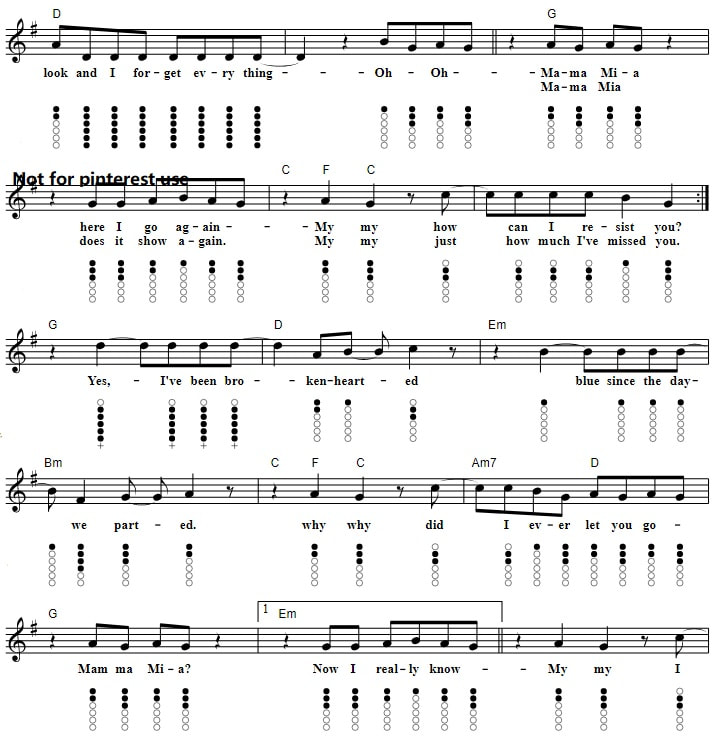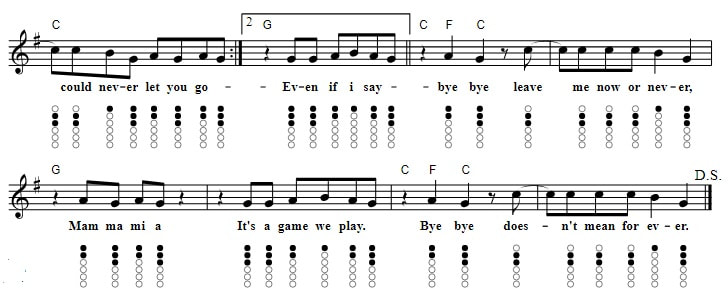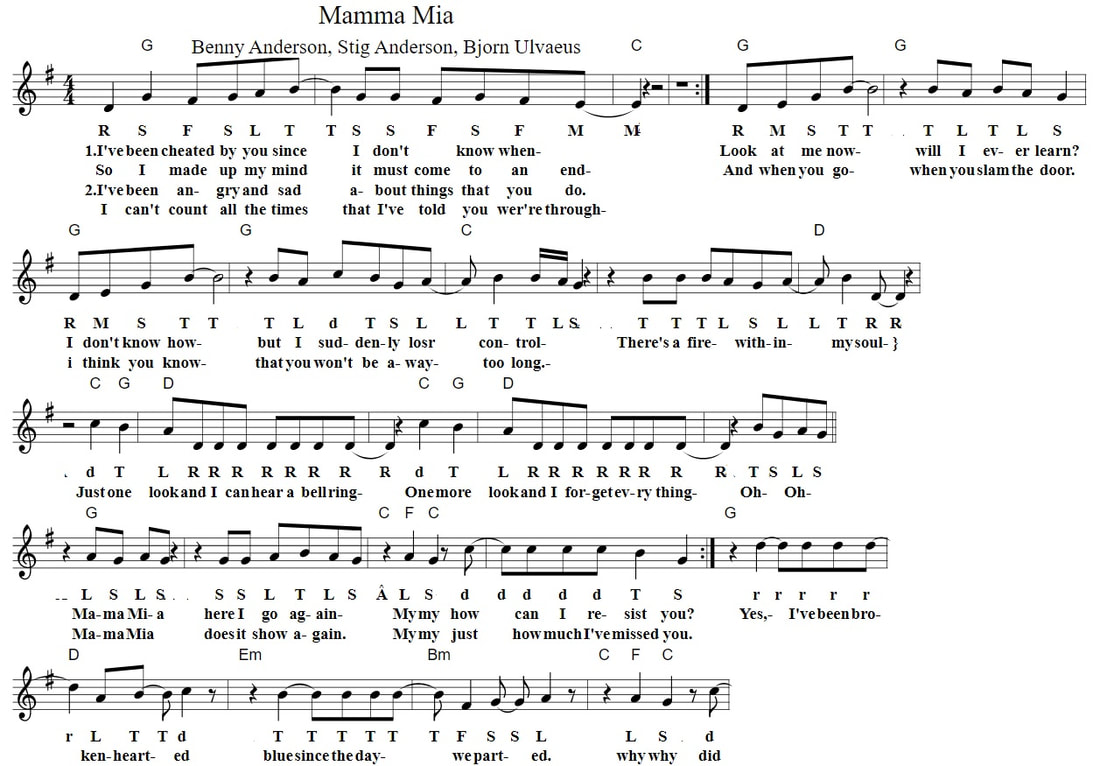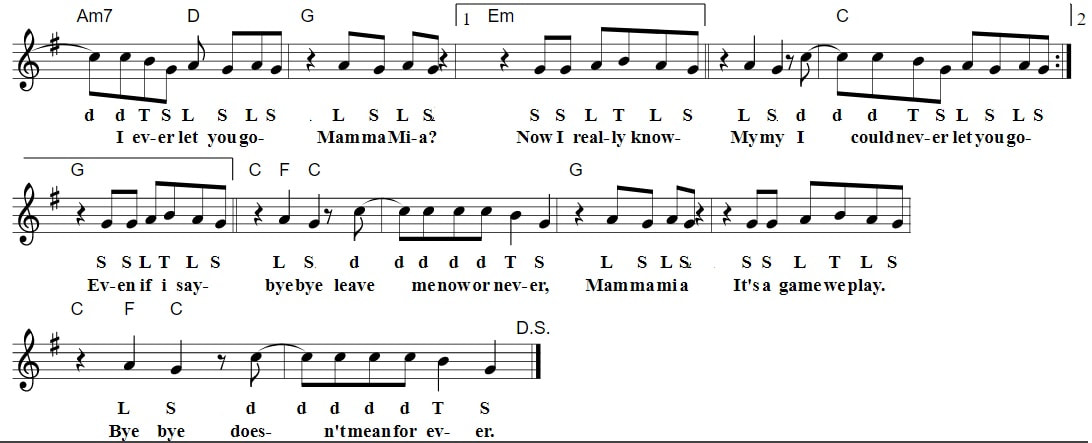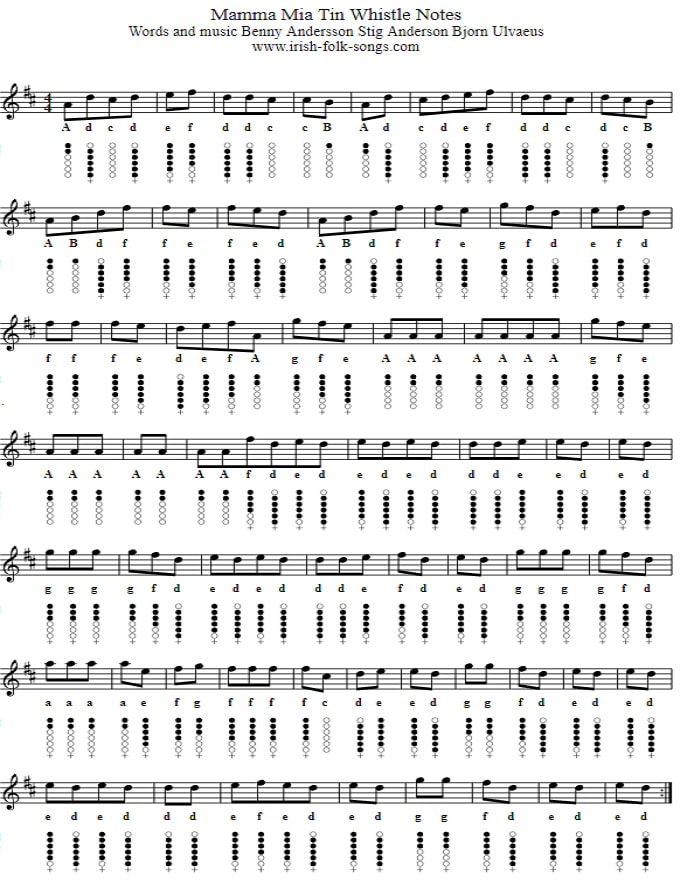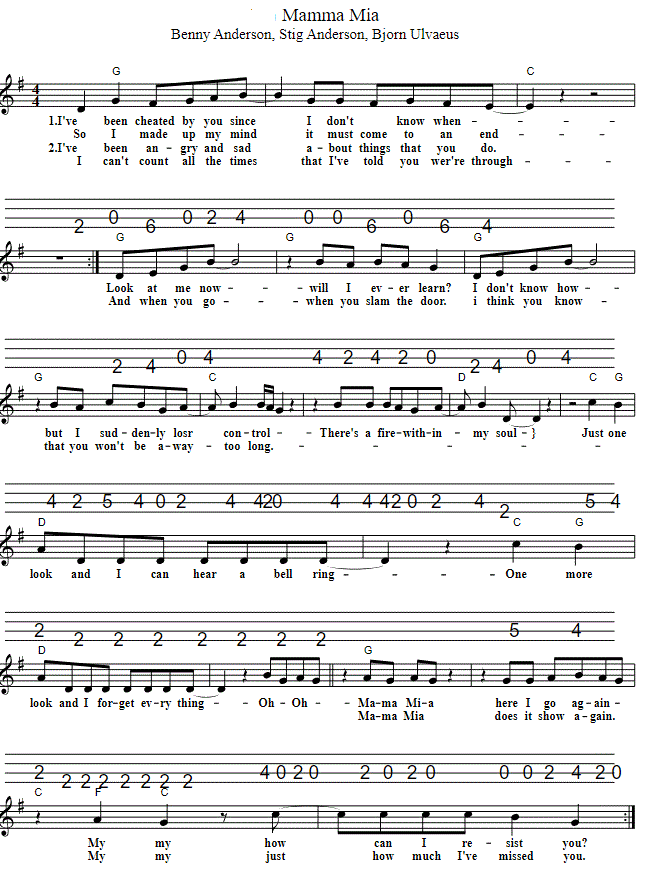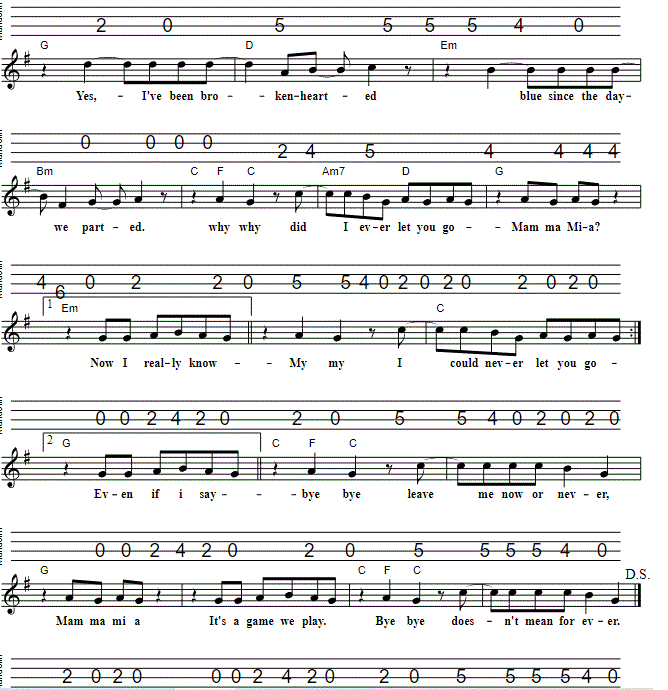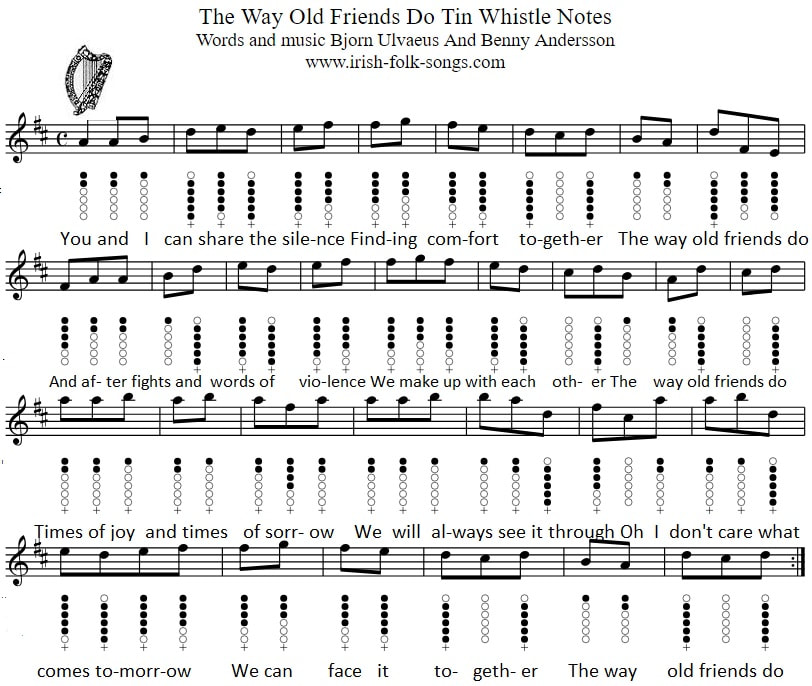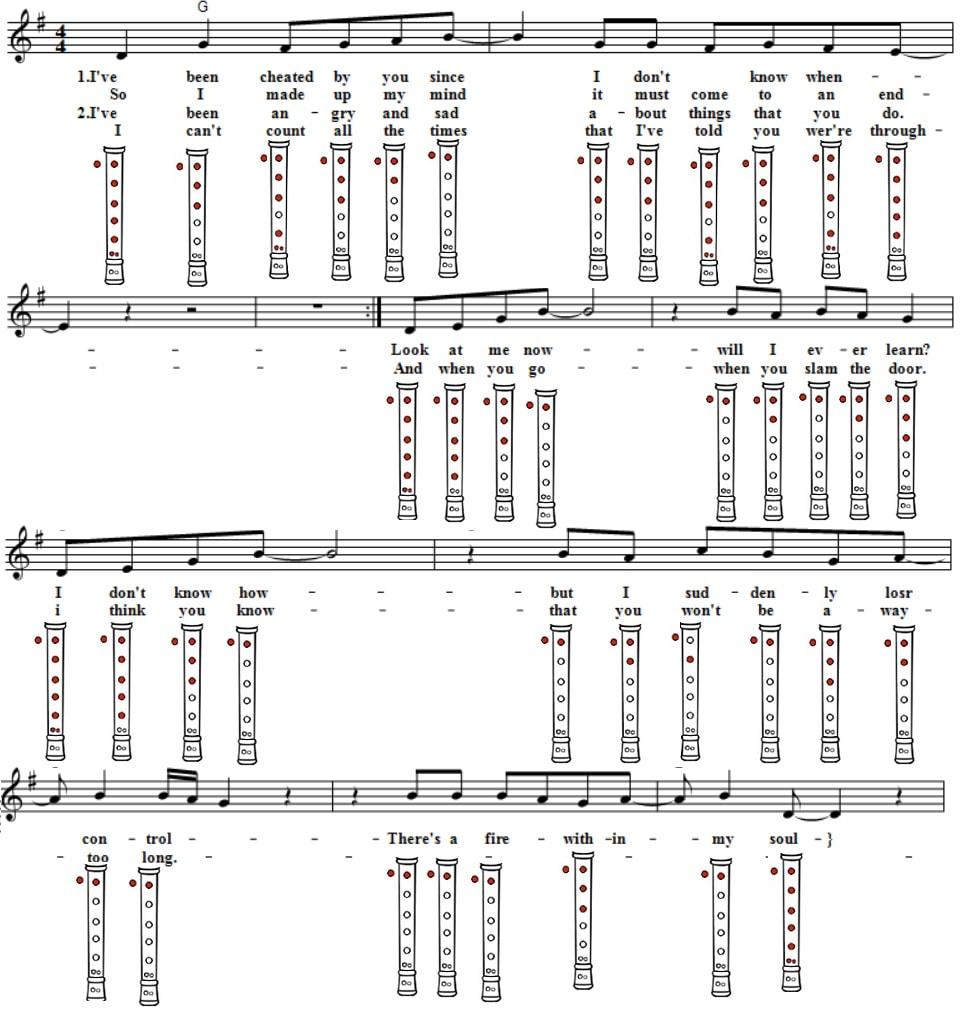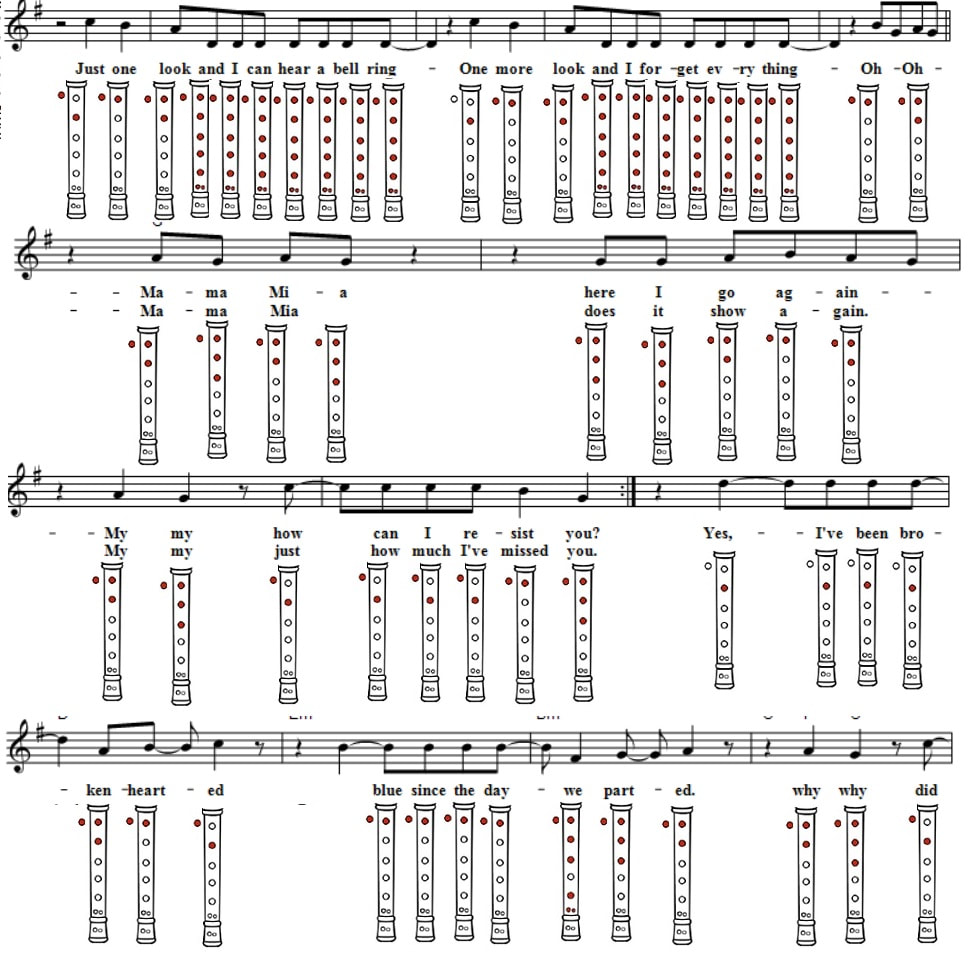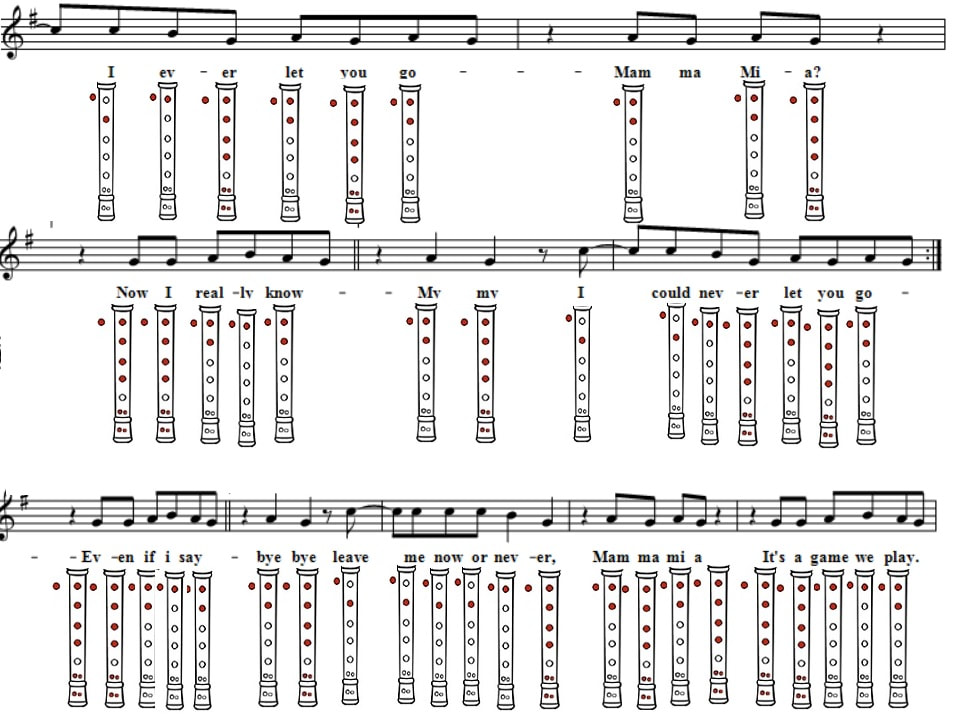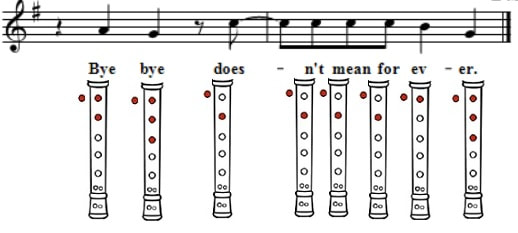Mamma Mia Tin Whistle Notes By Abba
Mamma mia tenor guitar / mandola tab in CGDA tuning now included. The Way Old Friends Do sheet music tab / notes is also included. The piano keyboard / accordion or recorder and violin letter notes are now included for beginners and improvers. This song by Abba is one of the longest set of notes to learn on the site. My advise for learning long songs is to break them down line by line until you have each line off by heart. The first piece of sheet music is in the key of G and is more suited to the whistle than the second piece in D as that one goes very high. Both can be played on a D whistle. Mamma Mia solfege do re mi notes included.The recorder notes finger chart
Introduction
The iconic song “Mamma Mia” has become a worldwide sensation since its release in 1975. Written by Benny Andersson and Björn Ulvaeus, former members of the Swedish pop group ABBA, the song has stood the test of time and remains a popular hit even after four decades. Its catchy tune, memorable lyrics, and infectious energy have made it a staple in musicals, cover versions, and popular culture. This thesis aims to explore the impact and significance of the “Mamma Mia” song on the music industry and society as a whole.
Historical Background
Before delving into the details of the “Mamma Mia” song, it is essential to understand the historical context in which it was created. The 1970s was a time of significant social and cultural changes, especially for women. The feminist movement was gaining momentum, and women were fighting for equal rights and opportunities. In this era, ABBA took the world by storm with their unique blend of pop, disco, and rock music. Their songs were upbeat, catchy, and often celebrated the independence and strength of women. Against this backdrop, “Mamma Mia” was born.
Musical Analysis
“Mamma Mia” is a perfect representation of ABBA's signature sound – a fusion of pop and disco with a touch of rock. The song starts with a synthesizer intro, followed by a catchy guitar riff and driving drums. The verses are sung in a subdued tone, while the chorus is powerful and uplifting, making it perfect for sing-alongs. The lyrics are simple yet effective, telling the story of a woman who is head over heels in love. The repeated use of the phrase “Mamma Mia” adds a playful and memorable touch to the song.
Impact on Musical Theatre
One of the most significant impacts of the “Mamma Mia” song is its contribution to the success of the musical of the same name. The musical, which premiered in 1999, became an instant hit, grossing over $2 billion worldwide and winning several awards. The musical's plot revolves around a mother and daughter's relationship, set to the backdrop of ABBA's music, with “Mamma Mia” being the title song. The musical's success can be attributed in part to the nostalgia associated with the song and its popularity among different generations.
Cultural Significance
The “Mamma Mia” song has become a cultural phenomenon, with a lasting influence on society. It has been used in countless movies, television shows, and commercials, making it a recognizable and relatable tune for people all around the world. The song's empowering message, coupled with its catchy tune, has made it a favorite among women of all ages. It has also become an anthem for female independence and strength, resonating with the values and ideals of the feminist movement.
Conclusion
In conclusion, the “Mamma Mia” song has become an integral part of the music industry, musical theatre, and popular culture. Its legacy continues to thrive even after four decades, with its timeless appeal and cultural significance. The song's impact can be seen in its lasting popularity, its use in various media, and its influence on societal values and beliefs. As long as people continue to sing along to its infectious chorus, “Mamma Mia” will remain a timeless classic, and its impact will continue to be felt for generations to come.
The iconic song “Mamma Mia” has become a worldwide sensation since its release in 1975. Written by Benny Andersson and Björn Ulvaeus, former members of the Swedish pop group ABBA, the song has stood the test of time and remains a popular hit even after four decades. Its catchy tune, memorable lyrics, and infectious energy have made it a staple in musicals, cover versions, and popular culture. This thesis aims to explore the impact and significance of the “Mamma Mia” song on the music industry and society as a whole.
Historical Background
Before delving into the details of the “Mamma Mia” song, it is essential to understand the historical context in which it was created. The 1970s was a time of significant social and cultural changes, especially for women. The feminist movement was gaining momentum, and women were fighting for equal rights and opportunities. In this era, ABBA took the world by storm with their unique blend of pop, disco, and rock music. Their songs were upbeat, catchy, and often celebrated the independence and strength of women. Against this backdrop, “Mamma Mia” was born.
Musical Analysis
“Mamma Mia” is a perfect representation of ABBA's signature sound – a fusion of pop and disco with a touch of rock. The song starts with a synthesizer intro, followed by a catchy guitar riff and driving drums. The verses are sung in a subdued tone, while the chorus is powerful and uplifting, making it perfect for sing-alongs. The lyrics are simple yet effective, telling the story of a woman who is head over heels in love. The repeated use of the phrase “Mamma Mia” adds a playful and memorable touch to the song.
Impact on Musical Theatre
One of the most significant impacts of the “Mamma Mia” song is its contribution to the success of the musical of the same name. The musical, which premiered in 1999, became an instant hit, grossing over $2 billion worldwide and winning several awards. The musical's plot revolves around a mother and daughter's relationship, set to the backdrop of ABBA's music, with “Mamma Mia” being the title song. The musical's success can be attributed in part to the nostalgia associated with the song and its popularity among different generations.
Cultural Significance
The “Mamma Mia” song has become a cultural phenomenon, with a lasting influence on society. It has been used in countless movies, television shows, and commercials, making it a recognizable and relatable tune for people all around the world. The song's empowering message, coupled with its catchy tune, has made it a favorite among women of all ages. It has also become an anthem for female independence and strength, resonating with the values and ideals of the feminist movement.
Conclusion
In conclusion, the “Mamma Mia” song has become an integral part of the music industry, musical theatre, and popular culture. Its legacy continues to thrive even after four decades, with its timeless appeal and cultural significance. The song's impact can be seen in its lasting popularity, its use in various media, and its influence on societal values and beliefs. As long as people continue to sing along to its infectious chorus, “Mamma Mia” will remain a timeless classic, and its impact will continue to be felt for generations to come.
The Abba Tin Whistle Ebook, Price €7.30
How to play Mamma Mia using easy piano letter notes.
Included below are the easy piano / accordion letter notes for beginners for Mamma Mia by Abba which are the same notes used in the above sheet music. They are also suited for playing on a flute, violin or recorder or piano keyboard.
